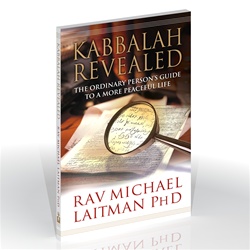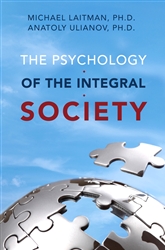
Now that we know that desires generate progress, let’s see how we’ve handled them throughout history. For the most part, we’ve had two ways of manipulating desires:
- Turning everything into habits, “taming” desires, or harnessing them into a daily routine;
- Diminishing and suppressing them.
Most religions use the first option, “tagging” each act with a reward. To motivate us to do what is considered good, our tutors and those around us reward us with positive feedback whenever we do something “right.” As we grow older, the rewards gradually stop, but our actions have become “tagged” in our minds as rewarding.
Once we are used to something, it becomes second nature to us. And when we act according to our nature, we always feel comfortable with ourselves.
The second way to handle our desires—by diminishing them—is primarily used by Eastern teachings. This approach follows a simple rule: Better to not want, than to want and not have, or in the words of Lao-tzu (604 BC – 531 BC), “Manifest plainness; embrace simplicity; reduce selfishness; have few desires” (The Way of Lao-tzu).
For many years, it seemed that we were getting by with just these two methods. Although we did not get what we wanted—because of the rule that when you have what you want, you no longer want it—the chase itself was gratifying. Whenever a new desire came along, we believed that this one would surely fulfill our wishes. We were hopeful as long as we kept dreaming; and where there is hope, there is life, even without actually fulfilling those dreams.
But our desires grew. They have become increasingly hard to satisfy with unfulfilled dreams, with an empty Kli, devoid of the filling it was meant to have. And thus, the two ways—taming desires and diminishing them—are facing a major challenge. When we can’t diminish our desires, we have no choice but to look for a way to satisfy them. In that state, we either abandon the old ways, or somehow combine them with a new way of searching.
A New Desire In Town
We have said that there are four degrees to the will to receive: a) physical desires for food, reproduction, and family; b) wealth; c) power and respect, sometimes separated into two distinct groups; and d) the desire for knowledge.
The four degrees are divided into two groups: 1) animal desires, the first degree, are shared by all living creatures; and 2) human desires, degrees two, three, and four, which are uniquely human. The latter group is the one that’s brought us to where we are today.
But today there is a new desire—the fifth degree in the evolution of the will to receive. As we’ve said in the previous chapter, The Book of Zohar writes that at the end of the 20th century a new desire will appear.
This new desire is not just another desire; it is the culmination of all the degrees of desires preceding it. It is not only the most powerful desire, but it contains unique features that differentiate it from all other desires.
When Kabbalists talk about the heart, they aren’t referring to the physical heart, but to desires of the first four degrees. But the fifth level of desire is essentially different. It wants satisfaction only from spirituality, not from anything physical. This desire is also the root of the spiritual growth one is destined to experience. For this reason, Kabbalists call this desire the “point in the heart.”
A New Method For A New Desire
When the “point in the heart” appears, one begins to shift from wanting worldly pleasures—sex, money, power, and knowledge—to wanting spiritual pleasures. Because this is a new kind of pleasure that we’re seeking, we also need a new method to satisfy it. The method to satisfy the new desire is called “the wisdom of Kabbalah” (the wisdom of how to receive).
To understand this new method, let’s look at the difference between the wisdom of Kabbalah, whose aim is to fulfill the desire for spirituality, and the methods used to fulfill all other desires. With our “ordinary” desires, we can usually define what we want quite easily. If I want to eat, I look for food; if I want respect, I act in a way that I believe will make people respect me.
But because I don’t quite know what spirituality is, how can I know what to do to attain it? Because in the beginning, we don’t realize that what we really want is to discover the Creator, we also don’t realize that we will need a new method to search for Him. This desire is so utterly different from anything we’ve ever felt before, it is unclear even to us. This is why the method of discovering and satisfying it is designated “The Wisdom of the Hidden.”
As long as all we wanted was food, social status, and—at most, knowledge—we didn’t need The Wisdom of the Hidden. We had no use for it, so it remained hidden. But its concealment does not mean that it was abandoned. On the contrary, for 5,000 years Kabbalists have been polishing and refining it for the time when people would need it. They have been writing simpler and simpler books to make Kabbalah understandable and more accessible.
They knew that in the future the whole world would need it, and they wrote that this would happen when the fifth level of desire appeared. Now this level has appeared, and those who recognize it feel the need for the wisdom of Kabbalah.
In Kabbalistic terms: To receive pleasure, you must have a Kli for it, a well-defined desire for a very specific pleasure. The appearance of a Kli forces our brains to search for a way to fill it with Ohr (Light). Now that many of us have “points in our hearts,” the wisdom of Kabbalah presents itself as a means to satisfy our desire for spirituality.
Tikkun – The Correction Of The Will To Receive
We have already said that the will to receive is a Catch-22: when I finally receive what I’ve been looking for, I almost immediately stop wanting it. And of course, without wanting it, I cannot enjoy it.
The desire for spirituality comes with its own pre-installed, unique mechanism to avoid this catch. This mechanism is called Tikkun (correction). A desire of the fifth level must first be “coated” with this Tikkun before it can be used efficiently and pleasurably.
Understanding the Tikkun will solve many common misunderstandings about Kabbalah. The will to receive has been the driving force behind every progress and change in the history of humanity. But the desire to receive has always been one to receive pleasure for self-gratification. While there is nothing wrong with wanting to receive pleasure, the intention to enjoy for self-gratification places us in opposition to Nature, the Creator. Therefore, by wanting to receive for ourselves we are separating ourselves from the Creator. This is our corruption, the reason for every misfortune and discontentment.
A Tikkun happens not when we stop receiving, but when we change the reason for which we are receiving, our intention. When we receive for ourselves, it is called “egoism.” When we receive in order to unite with the Creator, it is called “altruism,” meaning unity with Nature.
For example, would you enjoy eating the same food every day for months? Probably not. But this is exactly what babies are required to do. They have no choice in the matter. In fact, the only reason they agree to it is because they don’t know anything else. But surely there is only so much pleasure they can derive from eating, other than filling their empty stomachs.
Now, think of the baby’s mother. Imagine her face glowing as she is feeding her child. She is in heaven just watching her child eat healthily. The baby may (at most) be content, but the mother is elated.
Here’s what happens: Both the mother and the child enjoy the child’s desire for food. But while the child’s focus is on its own stomach, the mother’s pleasure is infinitely greater because of her delight in giving to her baby. Her focus is not on herself, but on her child.
It is the same with Nature. If we knew what Nature wanted of us, and fulfilled it, we would feel the pleasure of giving. Moreover, we would not feel it on the instinctive level that mothers naturally experience with their babies, but on the spiritual level of our bond with Nature.
In Hebrew—the original language of Kabbalah—an intention is called Kavana. Therefore, the Tikkun we need is to place the right Kavana over our desires. The reward for making a Tikkun and having a Kavana is the fulfillment of the last, the greatest of all wishes—the desire for spirituality, for the Creator. When this desire is fulfilled, one knows the system that controls reality, participates in its making, and eventually receives the keys and sits in the driver’s seat. Such a person will no longer experience life and death the way we do, but will effortlessly and joyfully flow through eternity in a never-ending stream of bliss and wholeness, united with the Creator.

The above text was taken from the book Kabbalah Revealed: A Guide To A More Peaceful Life by Dr. Michael Laitman with foreword by Prof. Ervin Laszlo. Also available as eBook (PDF, Kindle & ePub formats), and for free PDF download.


